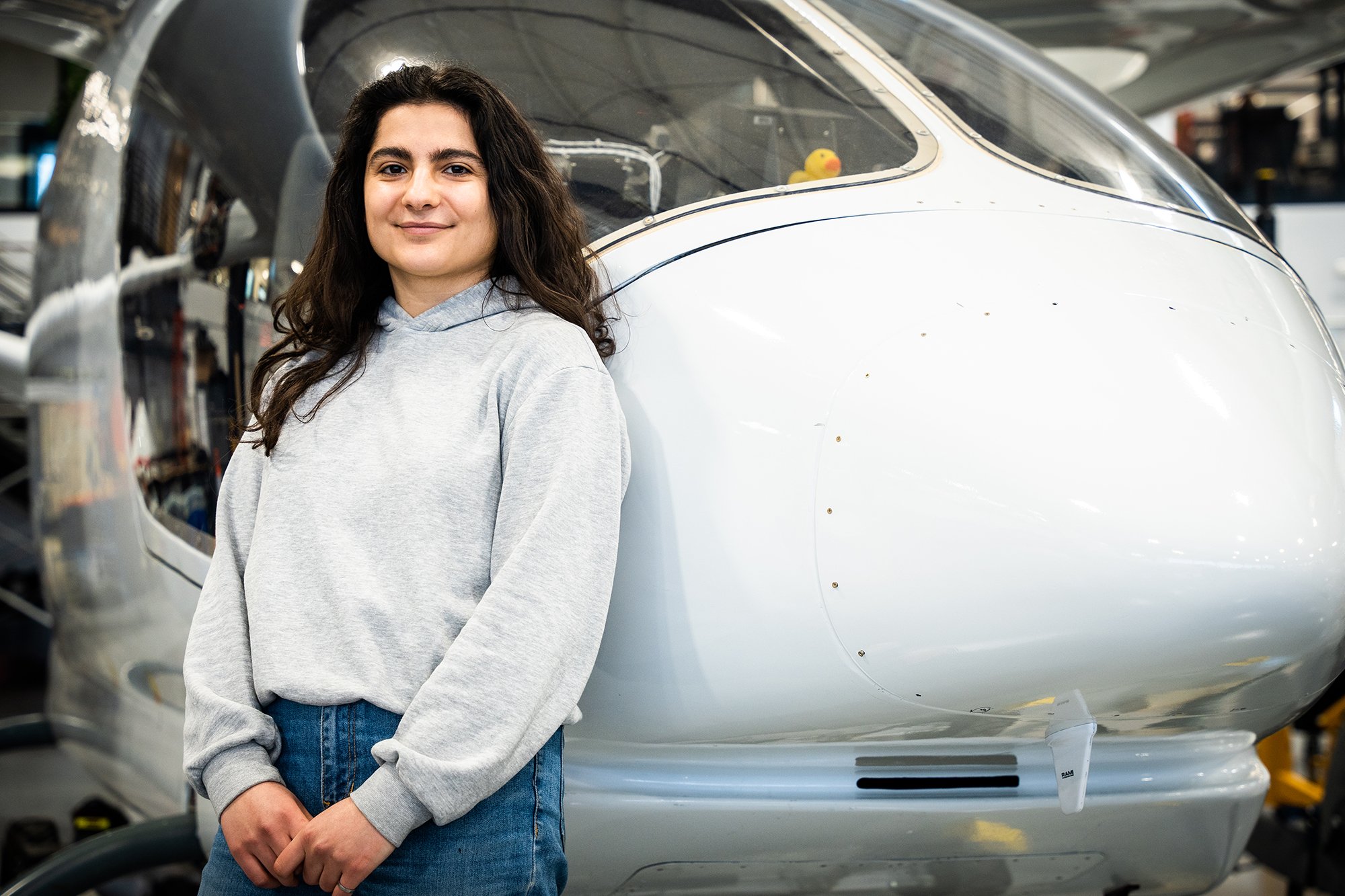'5+1' with Rayan El-Kotob – Manufacturing Engineer at BETA Technologies
Today we are coming along with a new ‘5+1’ interview, this time with Rayan El-Kotob – Manufacturing Engineer at BETA Technologies.
If you haven’t come across BETA Technologies yet – it’s a pioneering electric aerospace company developing vertical take-off and landing (eVTOL) aircraft for the cargo and logistics industry. Besides the company has developed a network of specially designed charging infrastructure to support their aircrafts. We are very pleased to have Rayan on board for our ‘5+1’ interview. You will learn more about her job as Manufacturing Engineer at BETA, how is the company an agenda-setter in the aviation industry and what BETA is doing to push gender equality and diversity forward. Besides Rayan gives us some advice for women who want to follow a STEM career and work in the aviation industry and her opinion on how aviation will look like in 2030.
1. Right now you work as a Manufacturing Engineer at BETA Technologies. What does your job involve and what is it that drives you?
One of my favorite aspects of my role at BETA is that every day is different. My weeks really vary depending on priorities, deadlines and who needs support. Some days I am assembling prototypes, others I am running design teams through workshops, documenting design for assembly or manufacturing reports, or running through design reviews. I love that my role really supports other team members. It means that I get the opportunity to not only learn from experts, but give them critical feedback to help improve their overall designs. It’s also a great feeling to know that everything we’re working on - and all of the incremental improvements we’re driving – is going toward making the world a more sustainable place with the introduction of electric flight.
2. In your view, how is BETA Technologies an agenda-setter in the aviation industry?
In the past year, we’ve flown halfway across the U.S. in multi-stop trips twice. We did it to gain real-world experience with our aircraft and our charging infrastructure – to see how they’d both perform in context so we could understand the products we’re developing for our customers. I think those trips, and the fact that we’re thinking ahead and developing charging infrastructure, is a big step forward. It’s something no other company is doing in this space, and I think it’s really valuable that we are looking at the technology in such a holistic way.
3. What is BETA Technologies doing to push gender equality and diversity forward?
We are always looking to add different types of people and unique thinkers to our team. It’s also really important to have a team that represents all sides of the spectrum. We’re continuing to try to grow the diversity on our team, and reached about 60/40 gender parity men/women with our most recent intern class. It’s something we think about a lot and continue to try to build out with workforce development programs and hiring partnerships in our regions of operation.
4. Do you have some advice for women who want to follow a STEM career and work in the mobility industry, and the aviation industry more specifically?
Stay curious. The breadth of what you can do in the STEM world is so wide – you never know what will spark your interest. I believed for a long time that I needed a higher degree, more technical experience, or a number of other excuses before I could move into the aviation industry. Don’t fall into that trap! Really apply yourself to the work and areas you want to make an impact in and be part of, and it will pay off.
5. Let’s talk about the future. What do you think aviation will look like in 2030?
It’s an obvious one, but I think we’ll see more sustainable options in aviation. And that’s not just from a powertrain and energy standpoint. I think we’ll see better materials, more accessibility and more diversity. We can hop on a bus so easily and affordably – we need to work toward a lower barrier to entry for aviation, too.
And the + 1 question from Rayan to you:
“Do you see any gaps in access to education or training to enter the aviation industry? If so, what would you do to change it?”
Pictures: BETA Technologies


